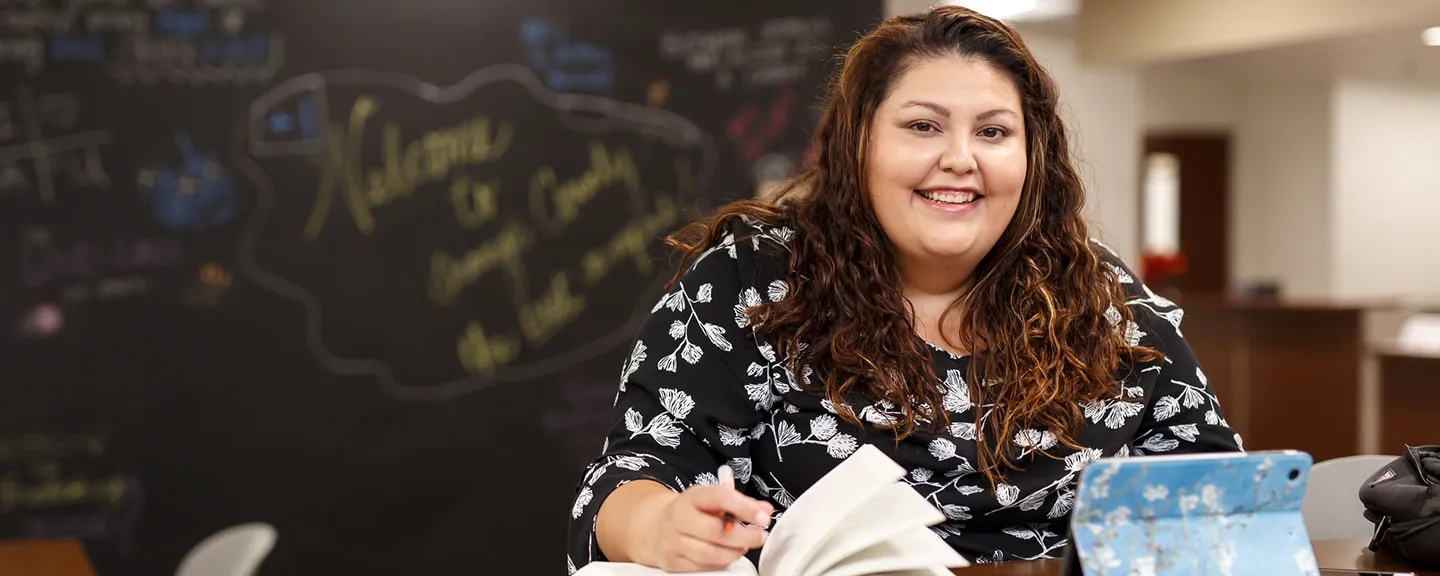- Home
- >
- APU Articles
- >
- News Article
APU’s Regional Campus Experience Provides a Sense of Community, Capability
October 11, 2018 | Written By Heather Nelson

Whether you’re interested in attending classes at the Orange County, San Diego, Inland Empire, High Desert, Monrovia, or Murrieta campus, you’ll be able to find a degree program that suits your goals and a schedule that works with your life. Here’s what you can expect when studying at a regional APU location.
A Warm and Welcoming Environment
At every Azusa Pacific campus, staff strive to give each student a feeling of home and purpose, making sure they’re greeted by name as they walk in the door. This welcoming environment is valued because many students pursuing degrees at an APU regional campus are working professionals with full-time jobs and other life commitments.
In fact, many of these students are parents juggling careers, family responsibilities, and their studies in the pursuit of their educational dreams. Their university experience is different from traditional undergraduate students on the main campus. Accordingly, the staff and faculty at each location make it their mission to provide a space that caters to students’ needs—academically, emotionally, and spiritually. And the faculty teaching in each program are the same experienced professors who teach students at APU’s main campus.
“One of the things I really love about the regional campus environment is that it gives us the opportunity to welcome people and allows everyone to feel free to be themselves,” says Drake Levasheff, PhD, senior director of the Orange County and Murrieta regional APU campuses. “The class sizes are small, and the important piece is that people are known.”
A Sense of Belonging
The director for APU’s San Diego Regional Campus, Jennifer Jordan, echoes Levasheff’s sentiments. “We know each student by name—we pray with them, we laugh with them, we cry with them,” she says. “Some come and they’re anxious and unsure about making this big step. We’re able to help boost their confidence, offer encouragement, and do everything we can to help them succeed. Everyone on staff is invested in every student.”
Another highlight of studying at a regional campus—especially for a student body that ranges in age from early 20s to late 50s—is the sense of belonging and camaraderie. By being in a classroom with other individuals who are also balancing demanding work, home, and school schedules, students can feel more comfortable with one another and better encouraged. Pursuing an education at this unique time in life calls for its own type of support—a support each regional campus is committed to providing.
“You want to keep your job as you’re learning, so you’re looking for something that’s close to your work and your home,” Levasheff explains. “Regional campuses allow APU to reach people they couldn’t otherwise reach. The staff here understand and embrace that. The education is about the students, but also their families and how it impacts them. There are people at home they’re working for. The education we’re providing is touching our communities.”
The Ability to Make a Difference
Not only do these regional campuses invest in students’ well-being, they invest in the well-being of the communities they serve. By training students in the areas they live and work, the campuses are preparing individuals to be difference makers in their local communities. “Our focus is on residents of Southern California who live and work near the campuses they’re attending,” Jordan explains. This results in new teachers leading their neighborhood schools, nurses working at a local hospital, and therapists providing care for their neighbors.
In addition to APU’s main campus in Azusa, its six regional locations offer a multitude of programs at the graduate and undergraduate level ranging from nursing to bachelor’s degree completion, education, business, theology, psychology, and more. Each location plays an important role in the lives of its students, and is considered a special part of the larger APU community.
“We love it here; we love being a part of the bigger whole,” Jordan says. “We may be remote, but we make sure the experience students get is comparable to the main campus. Anyone at a regional campus will feel like they’re a part of APU.”
Interested in pursuing a degree at one of the regional APU campuses? Find the campus location near you today!